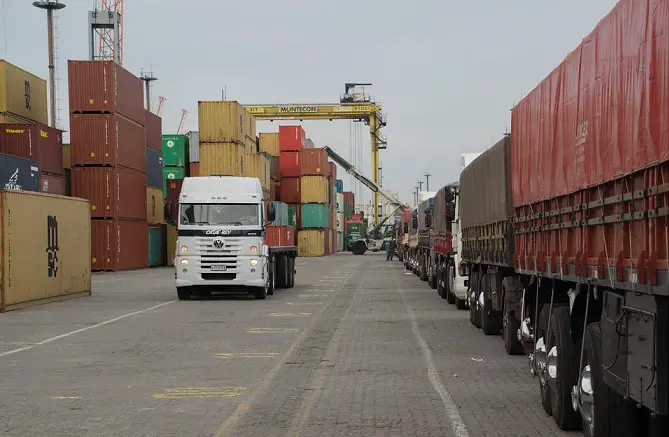South Korean Truckers protested for a fourth day Friday, over wages and the rising cost of fuel, as analysts worry this may become a significant threat to the semiconductor industry.
6,500 of South Koreas unionized truckers began a strike on Tuesday, demanding government make up the revenues they have lost to rising fuel costs. As Truckers blocked off factories and freight depots, Police made some arrests.
The truckers initially targeted industries which require raw material delivered just at the time of use for manufacturing. This included South Korean auto-giant Hyundai, which was forced to close four factories on Thursday. Meanwhile, Kia, a sister company to Hyundai, had employees personally drive finished cars to the shipping yards individually, rather than using trailered car carriers.
Truckers also targeted steel and cement factories, shutting down concrete factories, and preventing steel manufacturers from getting their products delivered.
However on Friday, the truckers shifted their focus to semiconductor manufacturers and the petrochemical industry.
In the interim, Busan and Incheon ports reported dramatic reductions in container traffic.
By Friday a thousand more truckers had joined the strike. However the striking truckers are only a very small portion of the largely non-unionized trucking industry in South Korea, and it is only about a third of the unionized truckers. However the Cargo Truckers Solidarity Union claimed the government is under reporting the number of truckers taking part in the strike, and that there is a large number of non-unionized truckers taking part in the strike in solidarity.
South Korean President Yoon Suk-yeol said the truckers and their employers must reach an agreement through dialogue over the issue, as he attempted to remain neutral in the dispute. Yoon added however, “But under no circumstance will people accept violent actions that break the law in a law-governed country.” About a dozen union truckers have been arrested for trying to block business activities at targeted businesses.
Nevertheless, pressure is mounting on the President to intervene as both constituents and international observers begin to worry about the broader global economic ramifications of the types of supply chain disruptions the truckers’ strike is generating.
The South Korean president explained, “Only when the government sticks to the law and principles and remains neutral, do I believe labor and management will be able to build the capacity to freely resolve their issues on their own. I have a lot of doubts about whether the government’s position or intervention until now was desirable for the establishment of labor-management relations and culture.”
However he left open the possibility of intervention later. However it appears the dispute may have reached a tipping point. Although some companies have warned they may have to implement dire emergency measures if the strike continues, a union official disclosed that the union ran out of money to fund the strike on Thursday, and it cannot continue much longer.


